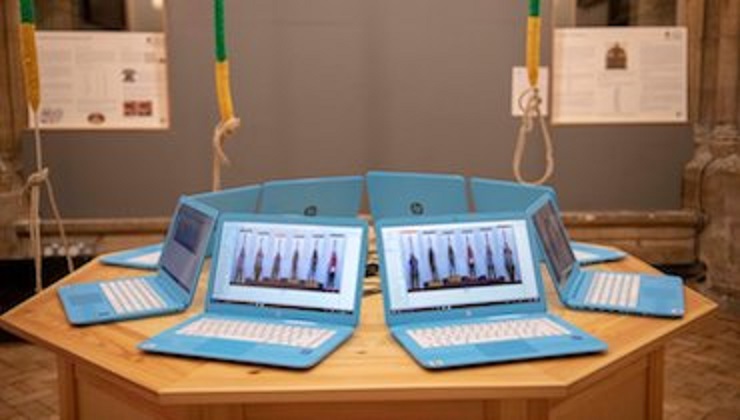A whole day workshop covering the various sensor systems and software available, as well as their use with dumb bells and real bells. Practical sessions explore how simulators can be used in the teaching of foundation skills and method ringing.
1. Objectives
By the end of the workshop, delegates will have an understanding of how simulators work, how to set one up and their general capabilities.
2. Content
2.1 Introduction
The introduction looks at the various sensor systems and software available, as well as explaining how to overcome common set-up problems. Practical sessions give an overview of the different software packages and an opportunity to experience them.
2.2 In-depth options
Options focus on a specific software package (either Abel, Beltower or Virtual Belfry). They look at how the video features can be used to teach ropesight, and how the striking analysis tools can be used to help improve striking accuracy.
3. Practical sessions
Delegates will work in pairs on a computer ‘workstation’. We start by explaining how to teach people to ring accurate rounds, including counting your place and leading. We then explain how to take them through a step-by-step approach to develop bell control and listening skills. Exercises involving changing speed at handstroke and backstroke are practiced before doing this continuously to plain hunt and progressing on to ringing methods.
4. Who is this workshop for?
People with little or no knowledge of simulators, who may have one in their tower but are not sure how to get it going, or who may be considering buying and installing one.
5. Eligibility
The workshop is open to anyone who is a competent ringer and interested in teaching with the assistance of a simulator.
6. How is this workshop delivered?
The workshop can be delivered in a whole day, or as separate half-days. In-depth half days usually focus on a specific software package - either Abel, Virtual belfry, or Belltower.


